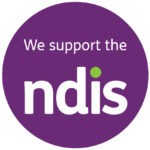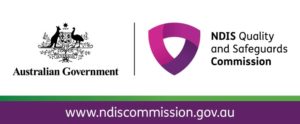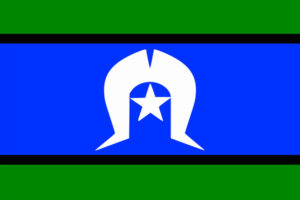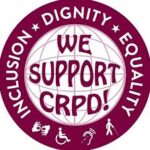Our Service Offer to Prospective Clients:
We specialise in the NDIS funded service provisions of support coordination (Levels 1, 2, and 3), transition pathways, and individual living and disability housing options. We deliver the above services regardless of disability type/s within the Central Highlands, Wimmera, and Western Outer and Inner Melbourne.
We do so with empathy, respect, understanding, and purpose in quality service delivery of works required in a responsive and timely manner for NDIS self-managed and third party plan-managed participants who have funding for service provision as stated.
- Department of Health and Human Services – Hospital pre-admission and discharge (Disability liaison officers)
- Department of Families, Fairness and Housing – Disability relating to Child Protection, Housing, Youth, Multicultural, and LGBTQIA+ Equality
- Department of Education and Training – Early Childhood through to Post School Options and
Transition - Department of Education and Training – Complex students and transitions
- Aboriginal Victoria – Indigenous Communities and Members within
- Victorian Multicultural Commission – Culturally and Linguistically Diverse Communities and
Members within - Victorian Equal Opportunity and Human Rights Commission – LGBTQIA+ Communities and
Members within
The services we provide are as numbered below 1 to 9:

Click on the arrows to reveal more info!
The NDIS can fund these Services, at your request, via your Plan:
Within a Capacity Building budget:
- Understand the Plan;
- Connect with Supports and Services;
- Design Support Approaches;
- Establish Supports;
- Coach, Refine, Reflect;
- Targeted Support Coordination;
- Crisis: Planning, Prevention, Mitigation and Action;
- Address Complex Barriers;
- Design Complex Service Plan;
- Build Capacity and Resilience; and
- Report to the NDIA.
- Negotiating procurement of services & supports at or below the NDIA Price List Recommended Unit Costings.
This area of services and supports strengthens a participant’s ability to design and then build their supports, with an emphasis on linking the broader systems of support across a complex service delivery environment. Coordination of Supports (Level Two) focuses on supporting participants to direct their lives, not just their services, and is focused on assisting participants to build and maintain a resilient network of formal and informal supports.
This involves working together with the participant to understand the funding, identify what participants expect from services, and how participants want this designed. Coordination of Supports also includes coaching participants and working with participants to develop capacity and resilience in their network.
Coordination of Supports includes, but is not limited to:
- Understand the Plan
- Connect with Supports and Services
- Design Support Approaches
- Establish Supports
- Coach, Refine, Reflect
- Targeted Support Coordination
- Crisis: Planning, Prevention, Mitigation and Action
- Build Capacity and Resilience
- Report to the NDIA
- Negotiating procurement of services & supports at or below the NDIA Price List Recommended Unit Costings.
Please note: This service is only offered to NDIS Clients with pre-approved intensive support coordination funding.
This service is individually tailored and offered in prior discussion of understanding, agreement and arrangements to be put in place via service agreement. We base this on an approach of training and instructional design that is done in collaboration with the client, and their informal and formal supports relevant to the client’s NDIS Plan goals.
The supports in this support category allow participants to take part in skills-based learning to develop independence in accessing the community.
Assistance in Coordinating or Managing Life Stages, Transitions and Supports
This support item, which includes mentoring, peer-support and individual skill development, is designed to establish volunteer assistance within the participant’s home or community to develop skills. For instance, assistance in attending appointments, shopping, bill paying, taking part in social activities and maintaining contact with others.
This support item can be delivered to individual participants subject to the rules set out in the NDIS Pricing Arrangements and Price Limits.
The supports in this support category help participants to find and keep employment.
Employment Related Assessment and Counselling
This support is designed to provide assessment or counselling to assist participants successfully engage in employment. (Note: if a participant is employed and on award wages, then in most instances a work place assessment is available through the Employment Assistance Fund administered by JobAccess and is a free service to employers.) For employment related counselling, this support may benefit participants who have, for example, experienced traumatic injury and need significant support (over and above a mainstream employment related service) to develop a new work pathway.
This support item can be delivered to individual participants subject to the rules set out in the NDIS Pricing Arrangements and Price Limits.
This support category is for provision of skills training, advice, assistance with arrangements and orientation to assist a participant moving from school to further education.
Transition through School and to Further Education
This support item is for the provision of skills training, advice, assistance with arrangements and orientation to assist a person with disability moving from school to further education.
This support item can be delivered to individual participants or groups of participants subject to the rules set out in the NDIS Pricing Arrangements and Price Limits.
This support category includes assessment supports, training supports, strategy development supports, and therapeutic supports (including Early Childhood Supports) to assist the development of, or to increase, a participant’s skills and their capacity for independence and community participation.
Early Childhood Supports (EC) – younger than 7
These support items provide capacity building supports in early childhood, including key worker, to assist a child (younger than 7) with developmental delay or disability and their family or carers in home, community, and early childhood education settings, to work towards increased functional independence and social participation. It is expected that the supports are delivered in line with the NDIS Commission’s NDIS Practice Standards and Quality Indicators for Early Childhood Supports.
These support items can also be used for the assessment, planning, and delivery of Disability-Related Health Supports where these supports directly relate to a participant’s significant and permanent functional impairment and assist them to undertake activities of daily living.
These support items can be delivered to individual participants or to groups of participants subject to the rules set out in the NDIS Pricing Arrangements and Price Limits.
(7 or older)
These support items provide services to participants (7 or older). Supports are for participants with an established disability to facilitate functional improvement, where maximum medical improvement has been reached. For people who access the Scheme as ‘early intervention’ participants, reasonable and necessary supports are likely to be a blend of medical and disability supports but should be predominantly disability supports. Services must be aimed at adjustment, adaption, and building capacity for community participation.
Maintenance care can be claimed against a participant’s plan, where the primary purpose is to provide ongoing support for a participant to maintain a level of functioning including long term therapy/support required to achieve small incremental gains or to prevent functional decline. In general, maintenance that is reasonable and necessary should be delivered by carers who are or can be trained in this if required. Where a participant has a medical condition or disability that requires a particular regime to maintain functioning of a body part, or to slow the deterioration of a medical condition or body part, then these support items can be used to deliver reasonable and necessary training for non-qualified personnel to assist a participant, as part of usual daily care. These support items cannot be used for massage, delivered directly to impact a body part or body system, as these supports are more appropriately funded by the health system.
These support items can also be used for the assessment, planning, and delivery of Disability-Related Health Supports where these supports directly relate to a participant’s significant and permanent functional impairment and assist them to undertake activities of daily living.
This support category relates to assisting with or supervising personal tasks of daily life to enable the participant to live as autonomously as possible. These supports are provided individually to participants and can be provided in a range of environments, including the participant’s own home.
Assistance with Self Care Activities
These support items provide a participant with assistance with, or supervision of, personal tasks of daily life to develop skills of the participant to live as autonomously as possible.
These support items can be delivered to individual participants subject to the rules set out in the NDIS Pricing Arrangements and Price Limits.
This support category relates to assisting with or supervising a participant to engage in community, social, recreational or economic activities. These supports can be provided in a range of environments, such as in the community or a centre.
Assistance to Access Community, Social and Recreational Activities
Participation in Community, Social and Civic Activities
These support items enable a participant to engage in community, social and recreational activities. These support items can be delivered to individual participants subject to the rules set out in the NDIS Pricing Arrangements and Price Limits.
Source: NDIS Website and Price Guide (effective as of 1 January 2024)
Psychosocial disability | NDIS
Individualised living options | NDIS
Your Question Answered:
Why are you different from other providers who promote these services?
We are different because we have extensive ‘lived’ and applied life experiences involving disability, health, mental health and many other service sectors, knowledge of their complex systems, and we are solutions-focused ‘drivers’. This mean we are here to ensure that everyone involved with the participant, whether paid or unpaid, is on the same page to best ensure they are supported and serviced to progress towards achieving their NDIS Plan goals. We operate under and strictly adhere to the NDIS Code of Conduct and NDIS Practice Standards and disclose how all this works to the participant and those involved around them prior to signing off on a service agreement for commencement of service provision and ongoing supports. We also provide a ‘Service Guarantee’.
We have over 50 years of combined professional and applied working, lived, and life experiences within disability and mental health systems and funding that has spanned across many metropolitan, regional, and rural areas regarding government (three tiers), human and social services to health (acute, mental and allied), aged care, housing, justice/corrections, employment, training, education, youth, community (engagement and development), indigenous, culturally and linguistically diverse and marginalised groups.
We are able to ‘join the dots’ quickly and effectively communicate and work in and alongside all the relevant stakeholders who are either already, and/or identified as required to be involved, right from the start. So, as well as ‘talk the talk’, we are able to ‘walk the walk’, which we have found is crucial in researching and then engaging both paid formal and non-paid informal service and supports locally, that through the previous mapping and planning approach with the participant, is required to be a part of the journey in progressing towards NDIS Plan goals.
We are also ‘Human-Centered’ designers of above related areas regarding programs, supports, and services that create that ‘wrap-around’ effect and are used to working with individual, small to large groupings of people, and professional, social, community, and formal/informal networks. We ensure the participant is always better off from when first met (i.e. negotiating procurement of services & supports at or below the NDIA Price List Recommended Unit Costings) and communicate when works we agree to move on are completed against either funded hours and/or the agreed proposed time-frame and budget. This ensures the participant receives more service and support ‘bang’ for their NDIS plan buck!
Example heading
We acknowledge and thank the NDIA for their permission given for the usage of logos displayed. We acknowledge the Traditional Custodians of the lands for which we service, and pay our respects to their Elders past, present, and emerging. We extend that respect to Aboriginal and Torres Strait Islander peoples. We acknowledge and thank artists Mr Harold Thomas, the late Mr Bernard Namok, and Mr Gilbert Baker for the promotion of inclusion and diversity in usage of the three flag symbols.







